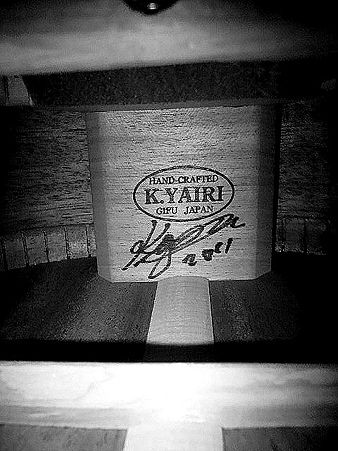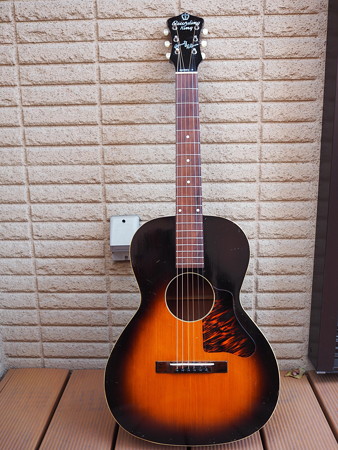×
[PR]上記の広告は3ヶ月以上新規記事投稿のないブログに表示されています。新しい記事を書く事で広告が消えます。

[PR]上記の広告は3ヶ月以上新規記事投稿のないブログに表示されています。新しい記事を書く事で広告が消えます。
https://www.facebook.com/KritikospaMu...35分のフル・アルバムっ
Muddy Waters - At Newport (1960)
Re Uploading August 02, 2013
Track Listing
01 00:00 "I Got My Brand On You"
02 04:44 "(I'm Your) Hoochie Coochie Man"
03 07:42 "Baby, Please Don't Go"
04 10:45 "Soon Forgotten"
05 15:02 "Tiger In Your Tank"
06 19:24 "I Feel So Good"
07 22:20 "Got My Mojo Working"
08 26:48 "Got My Mojo Working, Pt. 2"
09 29:49 "Goodbye Newport Blues"
All MusiC Review (Rating: 5/5, Album Pick)
http://www.allmusic.com/album/at-newp...
Wiki
http://en.wikipedia.org/wiki/At_Newpo...
RateYourMusic (Rating: 3.98/5)
http://rateyourmusic.com/release/albu...
Texas blues guitar giant Lightnin' Hopkins performs "Hurricane Beulah" and "Baby, Scratch My Back" in this clip from 1960. From the DVD "Lightnin' Hopkins: Rare Performances 1960-1979." More info at http://www.guitarvideos.com/products/vestapol-dvds/lightnin-hopkins-rare-performances-1960-1979タートルネックにカーディガン(・∀・)
Repost of Bo Carter's "All Around Man." All credit goes to the original poster, who is unknown.まいっちょ、Bo Carter。
Read about Bo, "the master of the single entendre," here: http://en.wikipedia.org/wiki/Bo_Carter
The field recordings of Son House made by Alan Lomax in 1941 and 42. In 1941 Lomax went in search of Robert Johnson, only to discover that Johnson had been murdered three years before. So Lomax recorded three tracks by Muddy Waters (McKinley Morganfield). Both he and Robert Johnson has both been taught by Son House, and Lomax also recorded six tracks by their mentor. Lomax returned the following year and recorded a further eight tracks by Muddy Waters and five by Son House. The sound in these recordings has been restored by Jean du Touche-Grande. Released on Zircon Bleu in 1999. The accompanying Muddy Waters video has been blocked worldwide.たっぷり40分っ
Tracklist:
1. Levee Camp Blues (0:07)
2. Shetland Pony Blues (3:53)
3. Delta Blues (7:21)
4. Special Rider Blues (Take 2) (12:42)
5. Low Down Dirty Dog (15:50)
6. Depot Blues (20:42)
7. American Defense (23:44)
8. Walking Blues (26:40)
9. Country Farm Blues (29:40)
10. The Pony Blues (31:52)
11. The Jinx Blues (Take 2) (36:07)
Bruce Springsteen performs León Gieco's "Sólo le Pido a Dios" from Buenos Aires, Argentina, September 2013. See more photos from Argentina and a recap of the show at http://brucespringsteen.net応援ポチっ頼んます。だあけみ
Stevie Ray Vaughan amazing acoustic blues from an interview in 1908, converted from old 16 mm film. Great quality ... I think. :) And if you believe that I have a some waterfront property in Nunavut for you!これはカッケ〜〜〜っっ
Check out my channel for more great SRV Video:
https://www.youtube.com/user/culley905
Visit the Stevie Ray Vaughan facebook page at:
https://www.facebook.com/stevierayvaughan
Buy SRV and Double Trouble Music on iTunes:
https://itunes.apple.com/us/artist/stevie-ray-vaughan/id484957
The official Stevie Ray Vaughan Homepage: http://www.srvofficial.com/ca
And finally join the SRV Google Plus community at:
https://plus.google.com/communities/106397774258971127226
"Please share, like, comment, and show interest in posting more of these old and rare recordings. I'll keep on hunting.. These videos are intended to help keep Stevie's memory alive and to introduce his great work to younger generations. I have had many great messages from young people who are just now discovering this legend of modern blues..
JOHN BARLEYCORNこれもブルーズ・・・??
TRAFFIC
1968
John Barleycorn Must Die is an album by the English rock band Traffic, released on Island Records in the United Kingdom, and United Artists in the United States, catalogue UAS 5504. It peaked at #5 on the Billboard 200, their highest charting album in the US, and has been certified a gold record by the RIAA.
Tommy Johnson recorded this song in 1928.応援ポチっ頼んます。だあけみ
The words must be understood in the context of the Prohibition. With the sale of liquor outlawed, many men like Johnson, who were accustomed to drinking, turned to cheap and still legal substitutes - more or less anything that contained alcohol. Sterno, a cooking fuel called "canned heat", was one of the most common of these substances. How many people it killed or crippled with the 'jake leg' we may never know, but these unexpected side effects of the 'Great Experiment' were felt most severely by blacks, who clould not affordto buy the more expensive bootleg liquor, particularly during the Depression when there was mass unemployment. Although the Prohibition amendment was repealed not long after Johnson's song was recorded, its effects continued to be felt in Mississippi. Archaic members of that state's legislature voted to keep Mississippi dry. Thus Tommy Johnson and many others were faced with the problem of ruined health throughout their lives (source : "Tommy Johnson" by David Evans - Studio Vista Books 1971)
His brother Mager told writer David Evans :
He believed in drinking. He loved that canned heat. He's the first fellow I ever heard tell of drinking canned heat. And he drank so much of it, he said he was going to put him out a record about the canned heat. That canned heat, you know, it was red. It was in those little okd cans. When you open it, take the top off the can. He'd strike hem a match and burn it, burn the top of it. And he'd put it in a rag and strain it. It's got juice in it. Squeeze the juice out of it into a glass. Ant then get him some sugar and put it i there. And then some water. And there he'd go...
The lp with orange cover called 'The Legacy of Tommy Johnson' illustrates above mentioned book. It features songs by Mager Johnson, Tommy's brother and many friends who were influenced by his style of playing and singing.
I'm playing a 1927 Handkraft Supertone in dropped D tuning
I did a four part lesson on this song; here's the link to the first lesson :
http://www.youtube.com/watch?v=ageQJ2...
You can download the tab at my website
http://www.daddystovepipe.com
I also did an elaborate instrumental version here
http://www.youtube.com/watch?v=1crvaH...
Check out my new cd available at Youtune Records
http://www.youtunerecords.com/daddyst...






